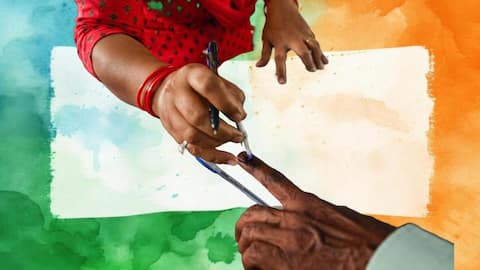Role of election observers: The guardians of electoral fairness
What's the story
Every general election, over 2,000 government officials from the All India Services are deployed across India as the eyes and ears of the Election Commission of India (ECI). In this election, over 2,150 senior officers from prestigious services such as the India Administrative Service, Indian Police Service, and Indian Revenue Service are appointed as observers to ensure the conduct of free and fair elections.
Supervision
Observers: Guardians of electoral integrity
The observers, appointed under the authority of the Representation of the People Act, 1951, and the constitutional powers vested in the Commission, are tasked with upholding election integrity. They serve in various capacities as general observers, police observers, and expenditure observers. Selected based on their impeccable track records, they operate under the direct supervision and control of the Commission, independently from their parent cadre.
Voter registration
Pre-election and election day oversight
During the pre-election phase, observers assess the electoral landscape, including voter registration and campaign activities, to ensure fairness. On election day, they oversee voting procedures, ensure adherence to guidelines, and address irregularities at polling stations. Their presence serves to uphold the integrity of the electoral process and safeguard the rights of voters, contributing significantly to the credibility and legitimacy of the election outcome.
Fairness
Ensuring fairness and equity: Election observers' dual mandate
Election observers contribute to voter education, informing citizens about their rights and the electoral process. They also monitor media coverage to ensure equal access for all political parties, preventing bias and promoting a level playing field. By disseminating information and advocating for fairness, observers uphold democratic principles, fostering an environment conducive to free and fair elections.
Monitoring
Addressing security challenges
Election observers play a vital role in addressing security concerns throughout the electoral process. Observers work diligently to maintain a secure environment by monitoring and supervising polling booths, thereby deterring potential threats or incidents of violence. During the critical phases of vote counting and result declaration, observers verify that the process is conducted impartially and in accordance with electoral regulations.
Cybersecurity
Technology and election monitoring
Technology greatly enhances election observation, offering efficient, accurate, and transparent monitoring tools. Innovations such as electronic voting machines and mobile apps streamline data collection and analysis, enhancing observation outcomes. However, the digital era brings challenges like online misinformation, cybersecurity threats, and social media's influence on electoral discourse. To tackle these, election observers maintain vigilant monitoring and implement robust cybersecurity measures.
Dispute resolution
Post-election assessments
Following elections, observers contribute to the post-election phase by providing assessments and recommendations for improving the electoral process. They play a crucial role in dispute resolution, ensuring that electoral grievances are addressed through fair and transparent mechanisms. By facilitating peaceful resolution and promoting confidence in electoral outcomes, observers help uphold democratic principles and foster trust in the electoral process.
